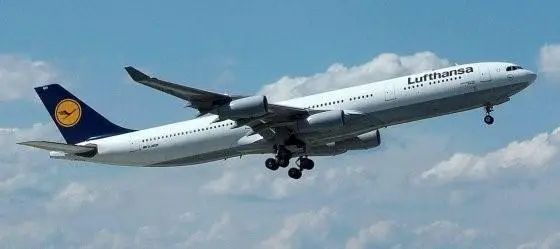Digitizing travel coordination has become a transformative approach for companies managing corporate travel. The shift to digital platforms allows for centralized booking, real-time tracking, data analytics, and enhanced compliance. These tools simplify complex processes, making travel coordination efficient, transparent, and cost-effective. With digital tools, companies can monitor expenses, ensure policy compliance, and provide employees with seamless travel experiences. This article explores how companies can benefit from digitizing their travel coordination, covering the tools, strategies, and best practices that make digital travel coordination effective in the business world.
Digitizing travel coordination offers several significant benefits that transform traditional travel management processes. One of the primary advantages is centralized access to travel data, allowing companies to monitor costs, identify trends, and make data-driven decisions. Digital systems also provide the convenience of managing bookings, itineraries, and expenses through a single platform, eliminating the need to switch between multiple tools and reducing the risk of oversight. Additionally, digital coordination enables automated alerts and reminders, ensuring that travel arrangements stay on schedule and within budget. By using digital solutions, companies can reduce administrative workload, improve accuracy, and enhance compliance with travel policies.
Another major benefit is enhanced traveler experience. Employees can easily access itineraries, change bookings, and submit expenses via mobile apps or online portals, which reduces the time and effort required to manage travel arrangements. For example, digital solutions can send real-time notifications about gate changes, flight delays, or local transportation options, keeping travelers informed and reducing stress. Furthermore, digitized coordination fosters transparency, enabling finance teams to track all travel expenses and ensuring accountability. The ease of reporting and data retrieval is crucial for audits and financial planning, making digital solutions a valuable asset in corporate travel management.
A centralized booking system consolidates travel requests and approvals on one platform. It simplifies vendor management, ensures policy compliance, and provides a clear overview of all bookings for finance teams.
Expense management systems track and categorize expenses, allowing employees to submit receipts digitally. This reduces paperwork, speeds up reimbursements, and provides real-time insights into travel spending.
Digital tools enforce travel policies automatically by flagging non-compliant bookings and alerting users. This reduces policy breaches and keeps travel expenses within set limits, ensuring cost control.
One of the most valuable aspects of digital travel coordination is data analytics. By capturing and analyzing travel data, companies can optimize travel policies, negotiate better vendor contracts, and identify trends in travel behavior. Analytics tools can track metrics such as average trip cost, booking lead times, and policy compliance rates. These insights are instrumental in identifying opportunities for cost savings and efficiency improvements. For instance, analytics may reveal that most business trips are booked last-minute, leading to higher prices. With this information, companies can encourage earlier bookings or negotiate flexible rates with vendors.
Reporting features in digital travel platforms provide finance and HR departments with quick access to detailed reports on travel expenses, compliance, and booking patterns. This transparency makes it easier to justify travel budgets, conduct audits, and monitor the effectiveness of travel policies. Reports can also segment data by department, destination, or project, enabling managers to understand the travel demands of different business areas. Regular reporting allows companies to measure the impact of their travel strategy, making adjustments as needed to optimize costs and improve policy alignment. These tools support both short-term and long-term planning, making travel management more strategic.
As a leader in corporate travel management, TPE (TravelpoolEurope) provides digital solutions that streamline travel coordination for its clients. TPE’s platform combines booking, expense management, and policy compliance into a single system, making it easy for companies to manage travel end-to-end. With TPE’s support, companies can digitize every aspect of travel coordination, from planning and booking to reporting and auditing. TPE also offers valuable insights based on industry data, helping clients make informed decisions and optimize their travel strategies. By offering centralized and automated solutions, TPE enables companies to reduce administrative burden and focus on achieving strategic travel goals.
Beyond technology, TPE also provides expertise in compliance and cost control. Their digital tools are designed to flag any policy breaches, ensuring that travel arrangements adhere to the organization’s guidelines. This compliance monitoring not only helps control expenses but also fosters accountability. Additionally, TPE’s analytics capabilities allow companies to track travel expenses in real-time, giving finance teams a clear view of spending trends and helping identify opportunities for savings. Through a combination of digital solutions and industry expertise, TPE supports organizations in building efficient, compliant, and cost-effective travel programs.
Traveler support tools enhance the travel experience by offering employees quick access to essential information and services. These tools include:
These support tools not only streamline the travel process but also reduce stress for travelers, enhancing their overall experience. With easy access to resources, travelers can focus on their business objectives rather than logistical concerns.
Implementing digital travel coordination requires careful planning. Follow these steps to ensure a smooth transition:
The table below compares some of the leading digital travel solutions and their features:
| Solution | Features | Best For |
|---|---|---|
| Concur Travel | Expense tracking, travel booking, real-time analytics | Large enterprises needing comprehensive reporting |
| TravelPerk | Booking management, compliance tracking, travel perks | Mid-sized businesses focused on employee satisfaction |
| Egencia | Automated expense submission, multi-currency support | International companies with complex travel needs |
| Expensify | Receipt scanning, budget tracking, mobile app | Small businesses and startups looking for cost-effective solutions |
Despite its advantages, digital travel coordination comes with some challenges. A key issue is ensuring employee compliance with digital tools, as some employees may resist new systems or processes. Providing comprehensive training and ongoing support can help alleviate this issue. Another challenge is data security; storing travel data digitally increases the risk of data breaches, so it’s essential to choose platforms with robust security features, such as encryption and two-factor authentication. Additionally, integrating digital travel platforms with existing systems, like accounting or HR software, can be complex and may require specialized IT support.
Companies must also keep up with frequent updates to digital tools, as technology evolves rapidly. Staying informed about the latest platform features and capabilities ensures that organizations continue to benefit from advancements in digital travel coordination. Despite these challenges, the long-term benefits of increased efficiency, better compliance, and cost control make digital travel coordination a worthwhile investment.


Mailing list
Sign up if you would like to